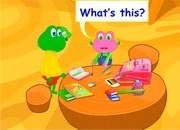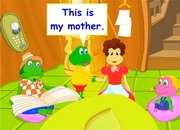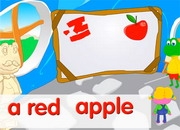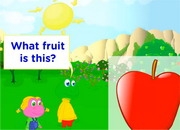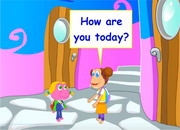What’s your name? ESL Video
- Topic: What’s your name?
- Communication Objectives: To understand and ask questions about names, and to be able to provide answers to the questions.
- Language Objectives: To be able to answer questions about oneself using the English language. To be able to ask questions about someone else using English language.
- Vocabulary: Possessive adjectives - my, your. Proper nouns – Bob, Freddie, Lisa and Sally. Possessive adjectives are describing words that are used to claim something as your own. Nouns are a person, place or thing and proper nouns are a person, place, or a thing with a name. Proper nouns are always capitalized. Nouns are only sometimes capitalized.
- Sentence Structures:
- What’s your name?
- My name is Bob.
- Grammar: Practice using ‘my’ and ‘your’ in everyday language, as they are possessive adjectives. Possessive adjectives are adjectives that tell who owns, or claims, something. Possessive adjectives show who something belongs to.
- My name is Bob. (means this is Bob’s name; it belongs to him).
What’s your name? (What name belongs to you?).
Unit 3 of ESL/EFL is all about introducing yourself and learning to ask and answer questions about yourself. It's an essential lesson for young learners who are beginning to learn English as a second language.
In this unit, students will learn how to introduce themselves in English by sharing personal information like their name, age, and where they come from. They will also learn possessive adjectives such as "my" and "your," which are the building blocks for talking about themselves and others.
One of the exciting features of this unit is the introduction of key characters in the course. These characters will accompany students throughout the course and provide a fun and engaging way to learn English.
In addition to introducing characters, students will learn the concept of spelling names. The name of a person is a proper noun and always starts with a capital letter. Learning to spell names correctly is an essential aspect of communicating effectively in English.
Overall, Unit 3 is a self-introduction lesson that provides the foundation for future language development. It's an opportunity for young learners to build confidence in communicating about themselves and others in English. By the end of this unit, students will be able to introduce themselves and ask questions about others in a fun and engaging way.


